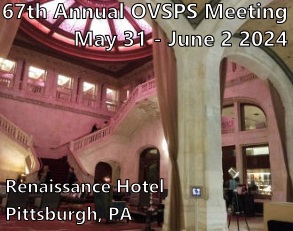<< Back to the abstract archive
Perceptions of the Competency-Based, Time- Variable Curriculum for Plastic Surgery Training: A National Survey of Fellowship Program Directors
Elizabeth Moroni, MD MHA, Casey Zhang, BS; Francesco Egro, MD; Jesse A. Goldstein, MD; Joseph E. Losee, MD; Vu T. Nguyen, MD
University of Pittsburgh Medical Center
2024-01-13
Presenter: Elizabeth Moroni
Affidavit:
I certify that the material proposed for presentation in this abstract has not been published in any scientific journal or previously presented at a major meeting. I certify that this work entirely represents the original work of the resident.
Director Name: Vu Nguyen
Author Category: Resident Plastic Surgery
Presentation Category: Clinical
Abstract Category: Hand
Introduction:
The Competency-Based, Time Variable (CBTV) model for graduate medical education emphasizes performance and skill mastery, rather than time-based benchmarks. In the upcoming year, residents from CBTV programs will begin applying to fellowship, with some graduating in 5 years of clinical training. This study aims to understand the perception of CBTV applicants from the perspective of fellowship program directors.
Methods:
An anonymous online survey invitation was sent to fellowship program directors in hand surgery, aesthetic surgery, microsurgery, craniofacial surgery, and gender affirmation surgery. The asked participants to rank the relative importance of various factors for CTBV applicants versus applicants from traditional 6-year plastic surgery training programs.
Results:
A total of 195 eligible participants were identified, of which 49 (25.1%) responded. 12 (25.5%) of respondents indicated that they would view a 5-year CBTV applicant favorably, 14 (29.7%) would view a 5- year CBTV applicant unfavorably, and the remaining 23 (46.9%) stated that graduation in 5 clinical years would not affect their view of an applicant. Compared to traditional applicants, 60% of respondents rated letters of recommendation of greater importance when considering CBTV applicants, and 46% rated residency program reputation of greater importance when considering CBTV applicants. In-service exam scores, dedicated research experiences, and number of publications were on average rated equally as important in both groups.
Conclusion:
Fellowship directors have varied views on 5-year CBTV applicants. Fellowship program directors place greater importance on letters of recommendation and residency program reputation when evaluating competency-based applicants.



